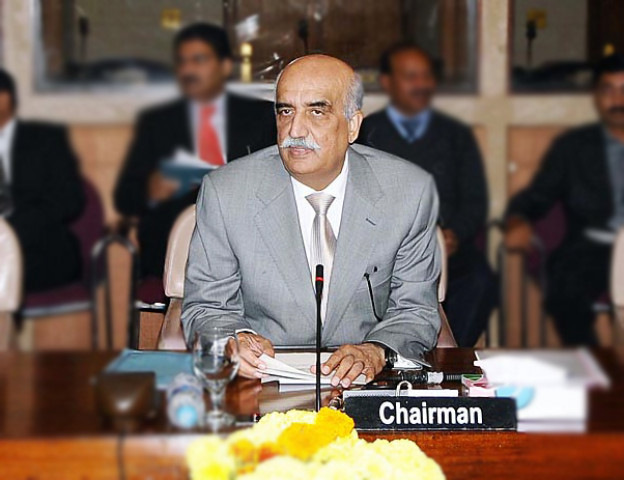Under-review: An insight into the current Public Accounts Committee
Current members lack relevant experience in management.

Under a Westminster-style parliamentary system, the PAC is a tool used to improve financial management provided the committees have the wherewithal. The implementation and the audit of expenditures come under the domain of legislative audit, according to various reports written on the PAC’s working in the Commonwealth member countries.

For instance in the case of the United Kingdom, the Committee of Public Accounts is appointed by the House of Commons to examine accounts showing the appropriation of the sums granted to the Parliament to meet public expenditure.
The Committee does not consider the formulation or merits of the policy that fall within the scope of departmental select committees rather it focuses on value-for-money criteria which are based on economy, effectiveness and efficiency.
Pakistan’s PAC also rose to prominence in 2009 when, under the Charter of Democracy, the Pakistan Peoples Party-led government appointed the then Leader of Opposition in National Assembly Chaudhry Nisar Ali Khan as its chief. Khan is a seasoned politician and has had insight of economic decision-making due to his rich political background. It was his luck that he had Tanvir Ali Aga as Auditor General of Pakistan who was again a retired but experienced bureaucrat. Aga’s last appointment was as Federal Secretary Finance.
The executive structure in Pakistan revolves around the position of Principal Accounting Officer (PAO), who is a federal secretary in the highest pay scale of 22. He is the chief finance officer and the chief administrative officer of the Ministry and without making him understand the importance of financial management no improvement can be expected.
The PAC under Nisar knew this reality and it focused a lot on changing the behaviours of the POAs towards legislative audit. The then chief executive, Syed Yousaf Raza Gilani also fully cooperated with the PAC and directed the federal secretaries to cooperate with the PAC.
By and large, members of 2009 PAC also had a better understanding of financial management. The likes of Nadeem Afzal Chan, though not knowledgeable about complexities of financial management, but were good in highlighting issues of public interest. Chan had played his role in curbing misuse of cars and plots.

However, the work done by the previous PAC proved short-lived, as its fear vanished after the resignation of Chaudhry Nisar. The 2009 PAC also had its weaknesses.
After Nisar’s resignation, Nadeem Afzal Chan of PPP became chairman for a brief period. Chan largely focused on public interest issues but he could not keep a firm grip on all powerful bureaucrats.
Shah-led PAC
After coming into power in 2013, the PML-N government appointed Shah as head of the 24-member PAC. Although a seasoned and respectable politician, Shah does not have rich experience in public finance management. Most of the members also lack the same experience.
Above all, the PAC Secretariat has also been weakened and it does not have the expertise and the skills to assist the members.
Many of the PAC members lack capacity and are not sensitised to the issues attached with public finances, says Yasmeen Rehman, a former PAC member. She argues that political pressure is another factor that undermines legislative audit.
She suggested that the Prime Minister should take the PAC working seriously and the courts should not interferes in legislative audit.
The ongoing tug of war between the PAC and the Auditor General of Pakistan Akhtar Buland Rana has also stopped the meaningful oversight of expenses.
There is also a clear conflict of interest as the Shah-led PAC is taking up reports pertaining to the period of the PPP government. Some audit observations are serious in nature and could have implications for the top policymakers and some senior bureaucrats including former secretary general to president Salman Faruqui, former prime ministers Yousaf Raza Gilani and Raja Pervaiz Ashraf.
The fear is that the conflict of interest would not only make the PAC ineffective but also render the audit work useless.
According to the latest audit reports pertaining to PPP’s last year in power, the Auditor General of Pakistan audited Rs1.1 trillion expenses covering 63 federal secretaries. The auditors unearthed 150 cases of irregular expenditures to the tune of Rs92.8 billion in just one year, which were incurred in violation of rules.
The audit is being performed to ensure completeness, accuracy, relevance and genuineness of expenses.
The auditors highlighted many issues in their reports. For instance, it caught federal secretaries misusing the car monetisation policy despite availing hefty monthly car allowance.
It has also highlighted irregular investments of public money by government departments and agencies. The auditors also highlighted the non-existence of internal audit controls in government departments.
However, all hinges on the PAC’s ability in bringing culprits to justice.
THE WRITER IS A STAFF CORRESPONDENT
Published in The Express Tribune, November 3rd, 2014.
Like Business on Facebook, follow @TribuneBiz on Twitter to stay informed and join in the conversation.



















COMMENTS
Comments are moderated and generally will be posted if they are on-topic and not abusive.
For more information, please see our Comments FAQ